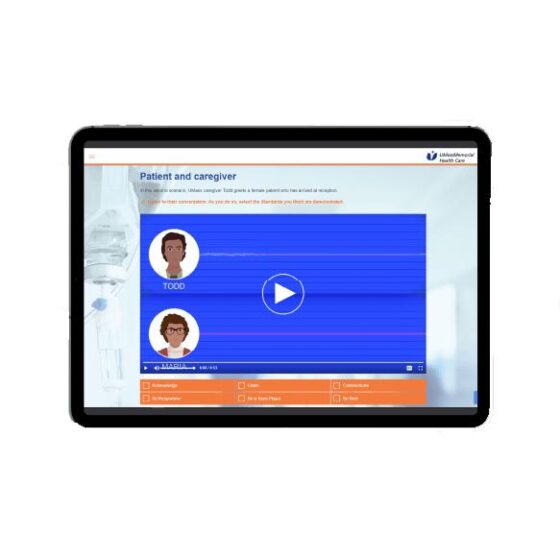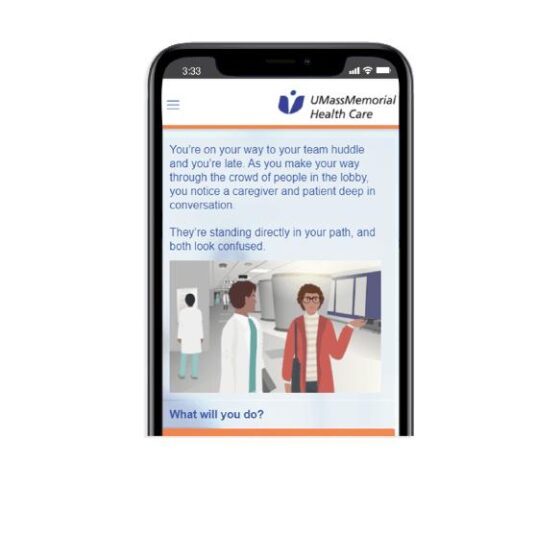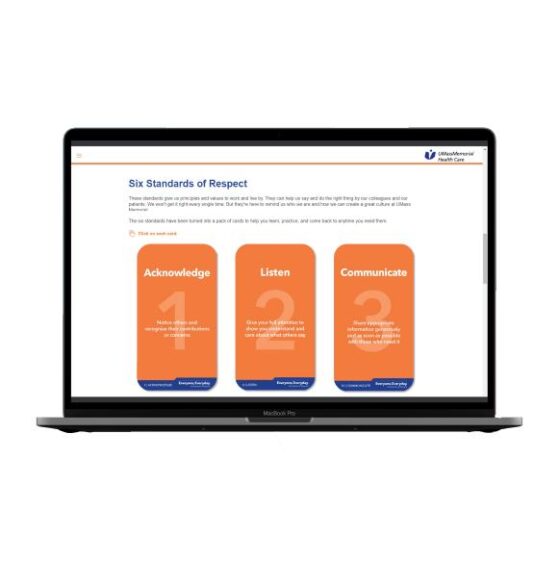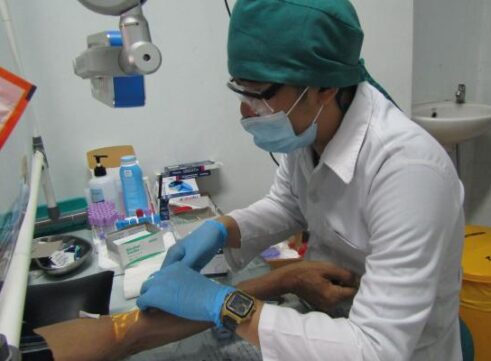Animation and audio scenarios help drive culture change at UMass Memorial Health Care
Experiencing a hospital stay through the eyes of a patient helps drive culture change at UMass Memorial Health Care.

The Challenge
Caregivers at UMass Memorial Health Care want the best outcomes for patients. But the pressures of a hospital environment meant demonstrations of respect sometimes slipped.
While individually disrespectful or fraught interactions are easy to ignore, the cumulative effect was increased stress for staff and a less-than-ideal patient experience.
When this was coupled with the hidden costs of lost time, poor communication and errors, the UMass Memorial team knew that they had to take action.
Starting in 2017, and led by a group of physicians and staff, the UMass Memorial team launched the ‘Standards of Respect’: six core behaviors that create positive outcomes for everyone. But how to embed these behaviors across the organization?

The Solution
UMass Memorial Health Care commissioned Mindtools to create a digital learning experience that brought these standards to life.
While the UMass Memorial team ran a series of internal face-to-face workshops on the Standards of Respect, the Mindtools team developed a highly interactive digital e-learning module for the sizeable group of caregivers who couldn’t attend in person.
Full screen animation, showing the perspective of a UMass Memorial patient, was used to highlight the problem. Then, through a series of audio scenarios, caregivers were challenged to assess the levels of respect in common hospital interactions.
After that, caregivers had the opportunity to ‘try the Standards out’ by exploring an interactive branching scenario, where their decisions affected a patient’s hospital experience.
And finally, caregivers were asked to take action: what one Standard would they commit to demonstrating over the next month?

The Results
Our follow-up survey found that 92% of caregivers agreed or strongly agreed that they could see opportunities to apply the Standards of Respect to their work.
On top of this, 87% thought the skills gained would be useful on their job, 87% thought the examples were relevant and easy to understand, and 83% agreed they had at least one “take away” that they could begin using the next day.


